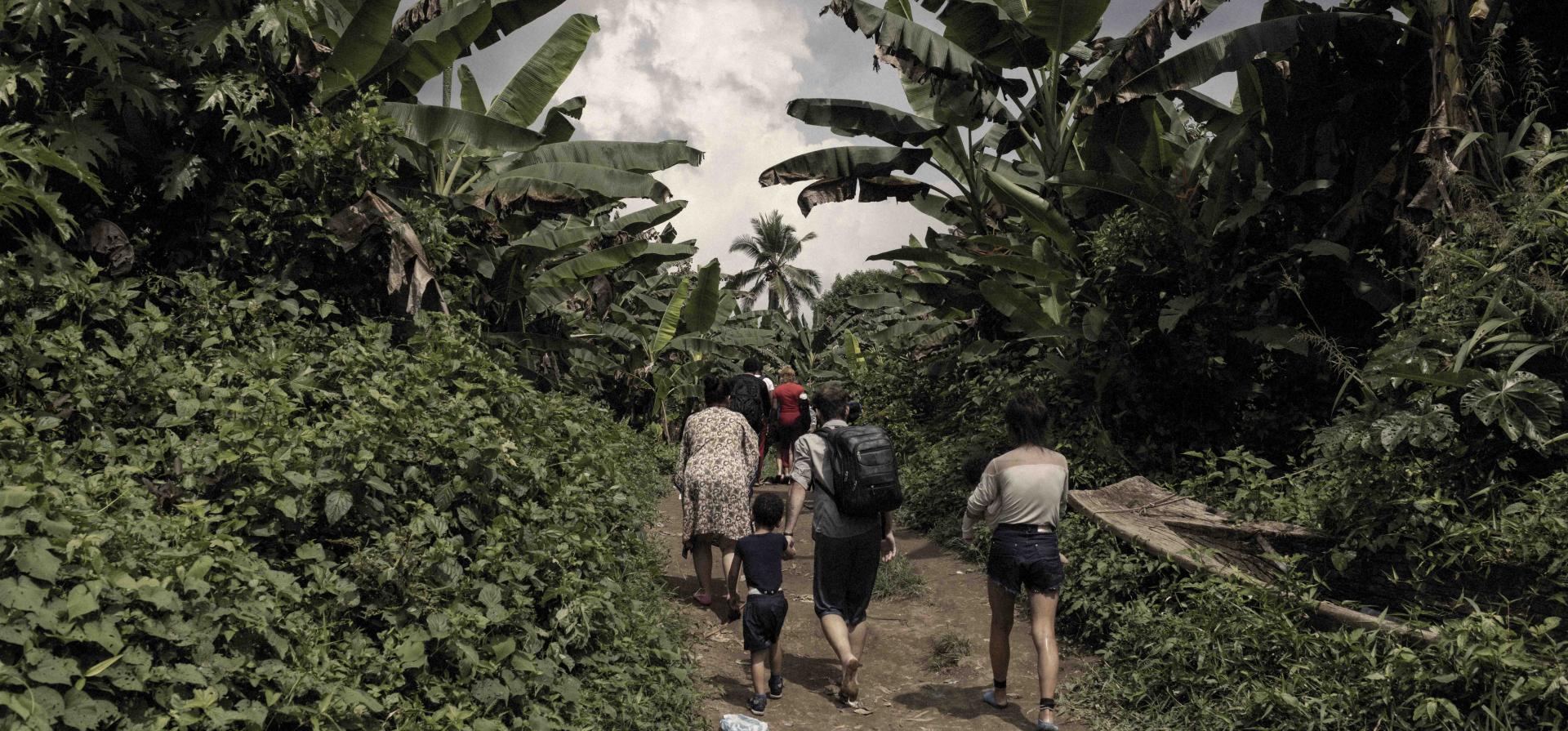2022 Year-end population figures
-
Refugees: 225,300
-
Asylum-seekers: 1.1 million
-
Others in need of international protection: 5.2 million
Population figures for Venezuelans under UNHCR’s mandate in Argentina, Aruba, Bolivia, Brazil, Canada, Chile, Colombia, Costa Rica, Curacao, Dominican Republic, Ecuador, Guyana, Mexico, Panama, Paraguay, Peru, Spain, Trinidad and Tobago, United States of America, Uruguay and the Bolivarian Republic of Venezuela.
2022 situation overview
The outflow of refugees and migrants from the Bolivarian Republic of Venezuela is one of the largest displacement crises in the world. In response, Brazil, Colombia, Costa Rica, the Dominican Republic, Ecuador, Paraguay, Peru, Uruguay and other countries have granted asylum and implemented protection-oriented arrangements that facilitate access to a legal stay, documentation and basic socioeconomic rights.
By the end of 2022, 2.5 million Venezuelans completed the pre-registration for temporary protection status in Colombia, with 1.6 million in possession of a temporary protection permit. In Brazil, 53,300 Venezuelans had been recognized as refugees by the end of 2022 and 345,300 had obtained residency permits. In Peru, 79,600 Venezuelan asylum-seekers were granted a humanitarian residency permit and almost 225,000 Venezuelans in an irregular migratory situation obtained a temporary residency permit. In Ecuador, 97,500 Venezuelans were registered for regular stay, including 33,250 who obtained temporary residency visas and 13,500 who received an Ecuadorian identification document. In the Dominican Republic, of the 43,000 Venezuelans who applied for the Normalization Plan, over 20,000 obtained non-resident visas enabling them to access work or student permits.
Despite significant efforts from hosting countries, multiple factors affected people’s ability to obtain a regular status and achieve socioeconomic inclusion. Those factors included the lack of country-of-origin documentation, livelihood opportunities, exploitation and abuse, and episodes of discrimination and xenophobia, which in turn triggered northbound movements, mainly to the United States of America (USA). However, there was a perception during the last quarter of 2022 of an improving economic outlook for the Bolivarian Republic of Venezuela, which also increased the number of spontaneous returns.
In response to the heightened number of Venezuelans and other nationalities engaged in onward movements across the region and arriving at the south-west US border, with a record number of about 150,000 Venezuelans crossing the Darién in irregular movements in 2022, the US Government announced on 12 October 2022 a “New Migration Enforcement Process for Venezuelans.” The announcement contemplated the return to Mexico of Venezuelans who crossed the border irregularly and the establishment of a new humanitarian parole programme that allowed up to 24,000 eligible Venezuelans to enter the USA. A month into its implementation, the number of Venezuelans attempting to reach the USA through the Darién jungle was just 668 in November, down from 40,593 in October 2022. Under the new parole programme, as of 27 December 2022, the US Department of Homeland Security had already authorized travel for more than 15,700 Venezuelan beneficiaries. Of those, more than 10,600 arrived and were paroled into the country.
In the Bolivarian Republic of Venezuela, despite the persistence of conditions that were generally not conducive to returns, there was a steady increase in the number of people coming back from host countries. However, returnees often faced harsh conditions once they were back home, ranging from difficulties in accessing jobs, social services and housing to a certain degree of hostility on the part of their neighbours who had remained. UNHCR focused on helping to provide solutions for returnees and took a lead role in the creation of an inter-agency Technical Working Group on Human Mobility and Reintegration and in the launch of reintegration pilot projects in the context of a wider operational effort that aimed to provide vulnerable Venezuelans with an array of reasons and options to stay in their country.
In host countries, through its co-leading role in the R4V Platform, UNHCR promoted and implemented a predictable and coordinated response to the humanitarian needs and challenges faced by Venezuelan refugees and migrants, including those engaged in mixed and onward movements across the region, reaching some 2.4 million refugees and migrants and affected host community members with assistance throughout 2022. In October 2022, the R4V Platform published the Refugee and Migrant Needs Analysis (RMNA), which highlighted the disproportionate impact suffered by Venezuelans in economies hard hit by the pandemic and the consequences of the war in Ukraine. The analysis served as a basis for developing an updated response strategy reflected in the first multi-year Regional Refugee and Migrant Response Plan (RMRP 2023-2024).
In this framework, UNHCR improved reception conditions, promoted access to asylum, mitigated protection risks, provided access to basic services, and advocated for the legal stay and inclusion of Venezuelan refugees and migrants. In 2022, UNHCR supported 864,600 individuals with protection-related assistance and specialized services. In terms of access to basic services, UNHCR delivered cash assistance to over 66,300 Venezuelans so they could become contributing members of the local economy, purchasing their goods in neighbourhood markets and paying rent to local landlords. In addition, UNHCR assisted with shelter and other solutions for around 56,000 refugees and migrants and facilitated access to emergency and primary health care for 92,000 displaced women and men, including children.
At the inter-governmental level, the Quito Process remained the central forum for coordination among host countries. Under the pro tempore presidency of Brazil and Chile, 13 Governments participated in the Process, along with 34 other actors, including UN organizations, cooperating States and international financial institutions which support the Group of Friends of the Quito Process.
